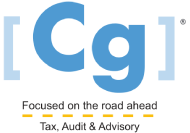Employee benefits are always a hot topic, and for good reasons – they constitute a major factor in recruiting and retaining top talent. A recent mandate from the state of New Jersey is sure to be a game-changer and has employers scrambling to understand its implications.
Governor Phil Murphy signed the New Jersey Secure Choice Savings Program Act, also called the NJ 401k Mandate, on March 28, 2019. But due to the COVID-19 pandemic, the implementation date was postponed to March 28, 2022.
The Act requires all private-sector employers in New Jersey to offer a retirement savings plan to their employees. While some larger companies already offer 401k plans, the NJ state-mandated retirement plan requires smaller businesses to set up a retirement savings program as well.
The 401k Mandate was lauded as a way to promote retirement savings for private-sector employees in a convenient, low-cost, and portable manner. However, employers must take note of the compliance requirements or face some serious consequences.
Does the NJ Retirement Plan Mandate Cover My Business?
The NJ Retirement Plan Mandate applies to all private-sector (Profit and Non-profit) employers that meet the following criteria:
- Employers who had 25 or more full-time employees in the preceding year
- Employers doing business in whole or in part within the state of New Jersey for the past two years
- Employers who do not currently offer a qualified retirement plan to their employees
If your business meets all three of the above criteria, then you are required to offer a retirement savings plan to your employees.
In the same vein, the state-mandated retirement plan does not apply to:
- Federal, state, county, or local government employers
- Employers that already offer a qualified retirement plan to their employees
- Employers with unionized workers who have negotiated a retirement benefit in their collective bargaining agreement
How Does the NJ 401k Mandate Work?
All participating employers must automatically deduct 3% of their employee’s pay (before tax) and deposit it into a retirement savings account. Employees can either decide to opt-out of the retirement plan or request a different contribution rate.
The amount deducted from employee paychecks will be deposited into an IRA account managed by a state-run program. All deposited funds are 100% vested and belong to the employee – even if they leave the company.
So, as an employer, you are responsible for:
- Making the deduction from employee paychecks
- Depositing the deducted amount into the state-run program
- Paying any administrative fees associated with the program
And you are not liable for:
- The investment performance of the retirement savings accounts
- The employee’s decision to opt-out of the program or change their contribution rate
What Happens If I Don’t Comply with the NJ Retirement Plan Mandate?
If you don’t comply with the NJ 401k Mandate, you could be subject to some hefty fines and penalties.
In the first year of non-compliance, you should expect a written warning from the state. During the second year, the state will charge you a fine of up to $100 for each employee that was not properly enrolled in the retirement savings program.
This fine increases from $250/employee during the third and fourth year of non-compliance to $500/employee during the fifth year and beyond.
So, if you have 50 employees and failed to enroll them in the retirement savings program during the second year, you would owe a $5,000 fine. And, should you default on registering them up till the fifth year, the penalty jumps to $25,000.
Also, employers that collect the 3% deduction from employee paychecks but fail to remit the funds to the state-run program will be subject to a $2500 fine the first time it occurs. But if this happens subsequently, that fine increases to $5000.
If you’re a business owner, it’s essential to understand your obligations under the new law and take steps to ensure compliance. When fines and penalties add up, they can put a strain on your business and negatively impact your bottom line.
Do you have any questions about the NJ state-mandated retirement plan? We’re happy to help!
As a leading provider of business, tax, and financial consulting services, we can help you navigate these changes and develop a compliance strategy that works for your business. Contact us today to learn more!

